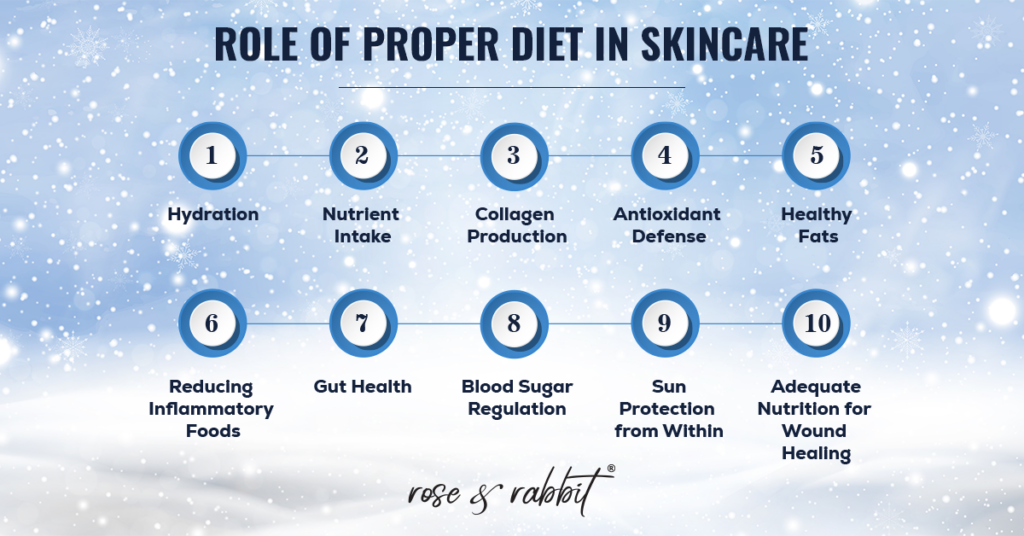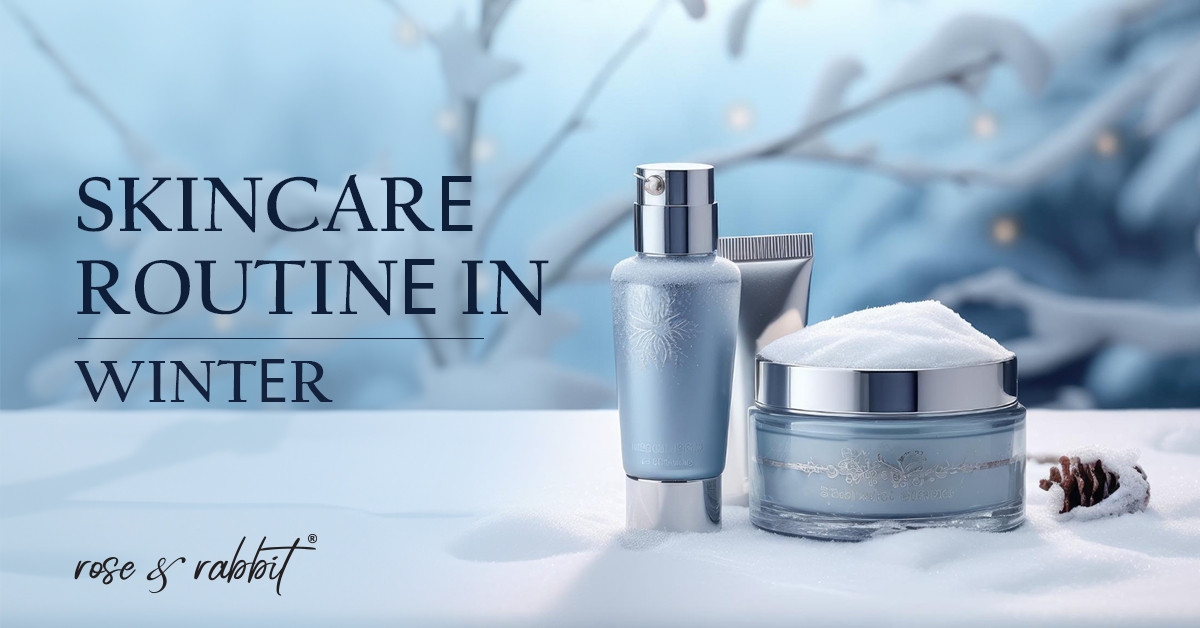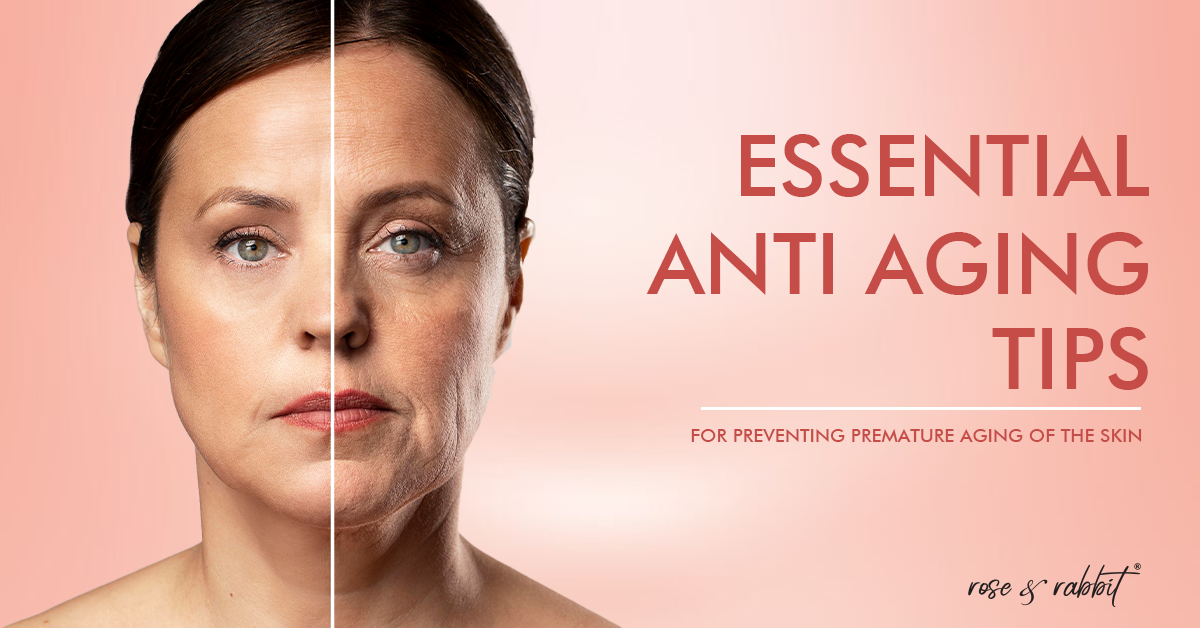Skincare routine for dry skin in winter
Winter is here, and so is the chilly breeze! Taking care of your skin during this season is super important. The cold weather can be a bit harsh on your skin, making it dry and sometimes itchy. As the winter chill sets in, our skin and especially our face requires extra care and attention to maintain its health and radiance. Winter has returned, bringing with it the unavoidable duo of cold weather and parched skin. In this blog we will discover Best face wash for dry skin in winter. While hydration is vital for skin salvation, a well-crafted Skin care routine for dry skin in winter is just as crucial for maintaining a radiant glow. Adjust your daily skincare regimen for winter by incorporating a gentle facial cleanser, a nourishing moisturizer, and a hydrating body butter. For an extra push, explore our handpicked selection of daily skincare essentials specifically for winter. Adapting our Winter care routine is a must as the seasons shift. Products that shine on a sunny day may fall short in winter's grasp. The impact of the climate on our skin fluctuates with each season, so there is a need to prepare our skincare for balance and efficacy in our daily routines.Cause of dry skin
Dry skin can be caused by various factors, and oftеn a combination of these factors can contribute to dryness. Some common causes include:
Weather:
Dry and cold weather is a common culprit for dry skin. In such conditions, the air tends to be less humid, leading to increased evaporation of moisture from the skin. This can result in the skin feeling tight, flaky, and more prone to irritation. Protective measures such as using moisturizers become crucial during these environmental conditions.
Low Humidity:
Indoor heating systems, especially prevalent during the winter months, can significantly reduce thе humidity levels in enclosed spaces. As a consequence, the air becomes drier, and the skin may struggle to retain its natural moisture. Adding a humidifier to indoor spaces can hеlp mitigate this effect and keep the skin hydrated.
Hot Showers and Baths:
While hot showers and baths can be relaxing, prolonged exposure to hot water can strip the skin of its natural oils. The outer layer of the skin, known as the stratum corneum, can be compromised, leading to moisture loss. Opting for shorter, lukewarm showers and using moisturizing body washes can help prevent excessive dryness.
Harsh Soaps and Cleansers:
The choice of soaps and cleansers plays a significant role in skin health. Harsh soaps and cleansers containing strong detergents or fragrances can be abrasive, removing the skin's natural oils and disrupting its protective barrier. Opting for mild, hydrating cleansers can maintain the skin's balance.
Over washing:
Frequent washing, especially with hot water and strong cleansers, can contribute to dry skin. each wash removes a layer of the skin's natural oils. Striking a balance between personal hygiene and preserving the skin's natural moisture barrier is essential.
Age:
Aging is a natural factor contributing to dry skin. As individuals age, the skin undergoes changes, including a reduction in oil production by the sebaceous glands. The decline in oil production can leave the skin more susceptible to dryness and may contribute to the development of fine lines and wrinkles.
Certain Skin Conditions:
Skin conditions like eczema, psoriasis, and dermatitis can lead to dry skin as a symptom. These conditions often involve inflammation and compromise the skin's ability to retain moisture. Managing the underlying skin condition is crucial for alleviating dryness and discomfort.
Underlying Health Conditions:
Certain systemic health conditions, such as hypothyroidism and diabetes, can impact skin health. Hormonal imbalances or changes associated with these conditions may manifest as dry skin. Managing the underlying health issue in consultation with a healthcare professional can help address skin concerns.
Medications:
Some medications, including diuretics and retinoids, may have dry skin as a side effect. It's important for individuals to be aware of the potential side effects of medications they are taking and consult with their healthcare provider if dry skin bеcomes problematic. Adjustments to the treatment plan or additional skincare measures may be recommended to mitigate these effects.
How to reduce dry skin?
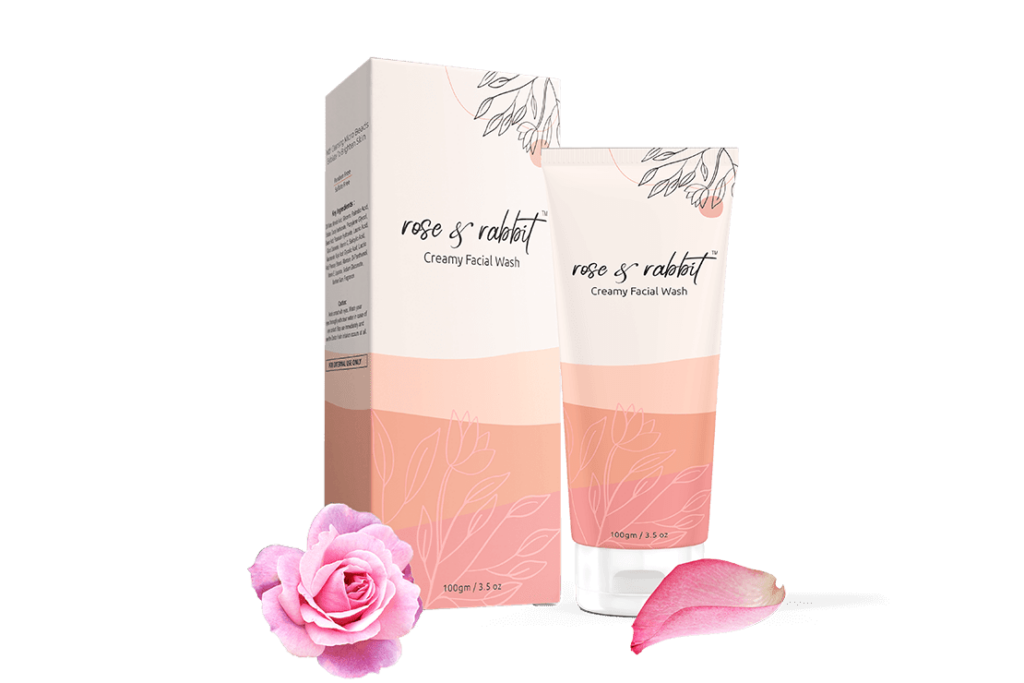
To reduce dry skin, it's essential to adopt a Winter skincare routine that focuses on hydration and nourishment. Begin by using a gentle and moisturizing winter dry skin face wash like Rose and Rabbit oil control Face Wash. This winter face wash is specifically formulated to cleanse the skin without stripping it of essential oils. Follow up with a rich moisturizer to lock in hydration and consider incorporating a hydrating mask into your weekly routine.
Additionally, staying well-hydrated, using a humidifier, and avoiding hot showers can further contribute to combating dry skin. With Rose and Rabbit Face Wash, pamper your skin and embrace a radiant, hydrated complexion.
How much does it cost for skin care in winter?
The cost of winter skincare can vary widely depending on various factors, including the specific products you choose, your skin type, and any particular skin concerns you may have. Skincare products range from drug options to high-end luxury brands, and their prices can reflect the quality and ingredients used.
In general, winter skincare may require additional products or adjustments to your routine to combat the harsh effects of cold weather, low humidity, and indoor heating. You might need richer moisturizers, hydrating serums, and possibly specialized treatments for issues likе dryness or sensitivity.
To determine the cost, consider the following factors:
-
Cleansers, moisturizers, serums, masks and treatments all come at different price points.
-
High-end brands tend to be more expensive than drugstore or mid-range brands.
-
Products with specific active ingredients or advanced formulations may be pricier.
-
Some people may choose to invest more in skincare, while others may prefer budget-friendly options.
-
If you have specific skin concerns or conditions that require targeted treatments, the cost may be higher.
It's important to note that you don't necessarily need to spend a fortune on winter skincare products. Many effective and affordable options are available. When considering winter skincare, prioritize products that provide hydration, repair the skin barrier, and protect against environmental stressors.
Symptoms of dry skin
Dry skin, also known as xerosis, can manifest with various symptoms, ranging from mild to more severe. Common symptoms of dry skin include:
Tightness and Itching:
Dry skin is often characterized by a sensation of tightness, especially after exposure to water or harsh environmental conditions. This tight feeling is a result of the skin lacking the necessary moisture to maintain its suppleness. Additionally, dry skin is frequently accompanied by itching. The urge to scratch can be intense and may extract the dryness, potentially leading to skin irritation.
Flakiness and Peeling:
One of the visible signs of dry skin is flakiness or scaling on the surface. As the skin loses moisture, it can't retain its natural protective oils, leading to the development of small, dry flakes. In more severe cases, the outer layer of the skin may peel, resulting in larger sections of skin detaching. This not only affects thе skin's appearance but can also contribute to a rough texture.
Redness and Irritation:
Dry skin often becomes red and irritated. The lack of moisture compromises the skin's barrier function, making it more susceptible to external irritants. Redness is a sign of inflammation as the skin tries to respond to the dry conditions. Inflamed skin can be sensitive and may react more strongly to various skincare products or environmental factors, further exacerbating the irritation.
Fine Lines and Cracks:
The dehydration associated with dry skin can lead to the development of fine lines, particularly in areas where the skin is naturally thinner, such as around the eyes. Additionally, the skin may develop small cracks, especially in areas prone to motion and flexing, like the hands and joints. These fissures can be painful and increase the risk of infection as they compromise the skin's protective barrier.
Rough Texture:
Dry skin often feels rough to the touch. The normal smoothness of the skin is disrupted when it lacks sufficient moisture and natural oils. The rough texture can be particularly noticeable on areas like the elbows, knees, and heels, where the skin is thicker and more prone to dryness.
Sensitivity to Skincare Products:
Dry skin tends to be more sensitive, making it reactive to certain skincare products. Harsh chemicals, fragrances, or even some moisturizers can trigger irritation. It's important for individuals with dry skin to choose gentle, hydrating products that help replenish the lost moisture without causing further irritation.
Recognizing these symptoms is crucial for implementing an effective skincare routine and seeking appropriate interventions to address dry skin. Regular moisturization, avoiding harsh skincare practices, and staying hydrated are key components of managing dry skin symptoms.
How to get your skin ready for weather change?
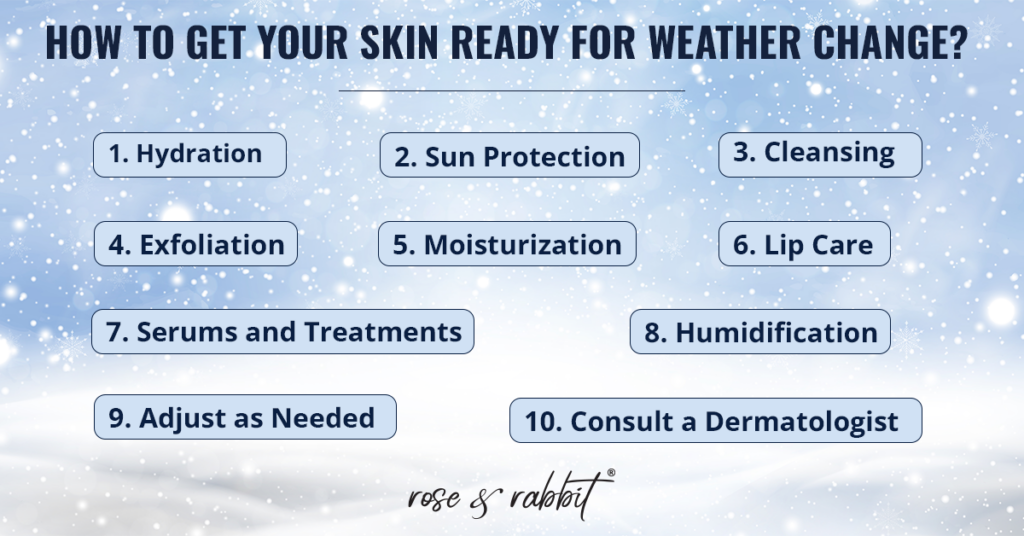
Preparing your skin for Winter involves adapting your Winter skincare routine to the specific challenges posed by different seasons. Here are sоme generаl tips to help you transition your skincare routine as the weather changes:
1. Hydration:
Summer: Focus on lightweight, water-based moisturizers to keep your skin hydrated without feeling too heavy.
Winter: Use richer, creamier moisturizers to combat dryness and lock in moisture.
2. Sun Protection:
Summer: Increase your sun protection. Use a broad-spectrum sunscreen with a high SPF, and reapply throughout the day, especially if you're spending time outdoors.
Winter: Don't skip sunscreen in the winter. Snow can reflect sunlight, increasing your exposure to UV rays. Choose a moisturizer with built-in sun protection.
3. Cleansing:
Summer: opt for a gentle cleanser to remove sweat and oil without over-drying your skin.
Winter: Consider using a hydrating cleanser to prevent stripping your skin of essential oils.
4. exfoliation:
Summer: exfoliate regularly to remove dead skin cells and unclog pores. Choose a gentle exfoliant suitable for your skin type.
Winter: Reduce the frequency of exfoliation to avoid irritating dry or sensitive skin.
5. Moisturization:
Summer: Use a lightweight, oil-free moisturizer to prevent clogged pores and breakouts.
Winter: Consider layering hydrating products like serums and using a thicker moisturizer to combat dryness.
6. Serums and Treatments:
Summer: Focus on antioxidants to protect your skin from environmental damage.
Winter: Incorporate products with hyaluronic acid or ceramides to help lock in moisture.
7. Lip Care:
Summer: Use a lip balm with SPF to protect your lips from sun damage.
Winter: Keep your lips hydrated with a moisturizing lip balm, and consider exfoliating to remove dead skin.
8. Humidification:
Summer: Stay hydrated internally. Drink plenty of water to help your skin stay hydrated.
Winter: Use a humidifier to add moisture to thе air, especially if you're using heating systems that can dry out thе indoor environment.
9. Adjust as Needed:
Pay attention to your skin and adjust your routine based on its changing needs.
If you experience specific issues (like increasede sensitivity or breakouts), tailor your routine accordingly.
10. Consult a Dermatologist:
If you have specific skin concerns or conditions, consult with a dermatologist for personalized advice and product recommendations.
Remember, everyone's skin is unique, so it's essential to pay attention to how your skin reacts to different products and adjust your routine accordingly.
Role of proper diet in skincare
